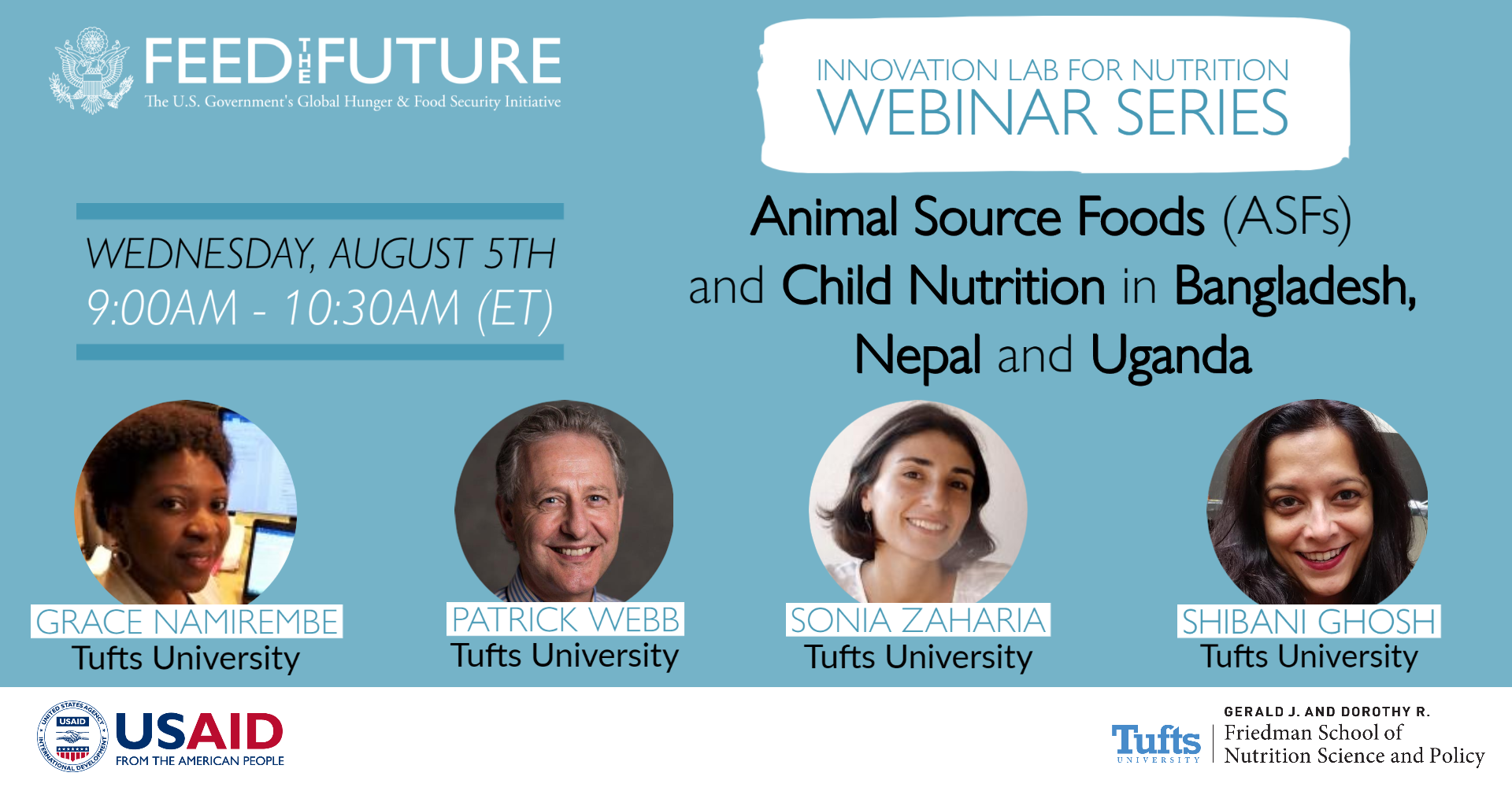Animal sourced foods (ASFs) are nutrient dense foods that when consumed in small amounts provide quality protein, vitamins, minerals and amino acids, and all nutrients critical for growth and development, particularly of infants and young children.
While evidence supports the contribution of ASFs in improving the linear growth of children, a better understanding of the long-term effects of the consumption of different ASFs is needed. This webinar examined the role of ASFs in improving the nutritional status of vulnerable populations and present findings from the Innovation Lab for Nutrition’s studies in Nepal, Uganda and Bangladesh. These include econometric multi-country analyses assessing the role of the type of ASF and the total number of ASFs in supporting optimal growth and development.
The webinar analysed nutrition-sensitive interventions (e.g. aquaculture and animal husbandry), consumption of ASFs, and nutritional status.
- Moderator: Grace Namirembe - Data Analyst for the U.S. Government’s Feed the Future Innovation Lab for Nutrition
- Dr. Patrick Webb - Director for the U.S. Government's Feed the Future Innovation Lab for Nutrition and Alexander McFarlane Professor of Nutrition at Tufts University Friedman School of Nutrition Science and Policy
- Dr. Shibani Ghosh - Associate Director for the U.S. Government's Feed the Future Innovation Lab for Nutrition and Research Associate Professor at the Friedman School of Nutrition Science and Policy, Tufts University
- Dr. Sonia Zaharia - Post Doctoral Fellow for the U.S. Government’s Feed the Future Innovation Lab for Nutrition


No comments:
Post a Comment